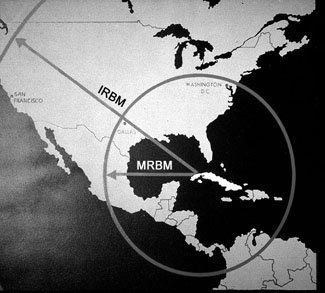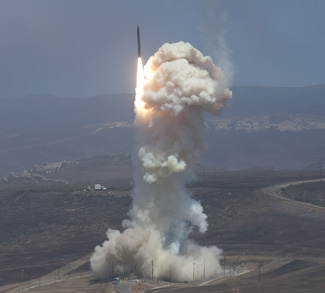FORECAST
According to a new report by the American NGO Human Rights First (HRF), China is selling small arms to Sudan, which are used in the Darfur conflict to maim and kill civilians, in exchange for access to Sudanese oil.
HRF concludes that the violence in Darfur will continue unless China heeds Western pressure to stop its oil-for-weapons trade with Sudan. However China views the report as groundless and with ulterior motives, implying Western attempts to counter Chinese influence and limit Chinese access to Sudan’s oil.
While other nations reduced their small arms sales in compliance with recent UN arms embargoes, China increased its sales fivefold, becoming the largest supplier of weapons to oil-paying Sudan and fostering the Darfur conflict’s escalation. HRF states that between 2004 and 2006, China sold $55 million worth of small arms, making up 90 per cent of Sudan’s purchases.
Observers in Darfur reported seeing Chinese weaponry ranging from grenade launchers to ammunition used by the Sudanese government-backed Janjaweed, the militia responsible for the mass killing and rape of the non-Arab population since the conflict began in 2003. Chinese companies and engineers have also been sent to the region to develop and produce weaponry and vehicles for the militia.
Unconcerned by the atrocities in Darfur, China has strengthened its political, economic, and military relationship with Sudan’s government in order to secure access to much-needed oil that will sustain China’s economic growth and expansive energy needs back home.
Beijing provides Sudan with over a billion dollars in concessions to develop infrastructure for the extraction and transportation of crude oil and sends military advisers to train Sudanese troops and Khartoum-supported “oil police” guarding Chinese controlled oil fields and clearing others.
As a result, Sudan’s production in oil has increased by almost 300 per cent, from $1.2 billion dollars in 2000 to $4.7 billion in 2006, with China buying nine out of every ten barrels of crude oil. At least 70 per cent of the oil profits go to Sudan’s armed forces and militias. These oil profits are then used to buy more weapons, fueling the conflict in Darfur.
China’s desire for oil not only manifests itself in arms sales, but also in political protection of Sudan, especially at the UN. China has vetoed efforts by the Security Council to censure Sudan, weakening nine out of fourteen Council resolutions between 2004 and 2007, but was unable to stop the 2004 arms embargo against Sudan, which Sudan has rebuked and China has violated.
China defends its support of Sudan and via a policy of “non-interference in the internal affairs of other sovereign states”. This policy has seen China turn to other oil-rich nations with poor human rights records such as Iraq, Iran, and Burma since the rest of the world’s oil reserves are controlled by Western companies.
With Western nations and NGOs using the upcoming Olympics as leverage against China’s arms sales, China has attempted to deny and deflect attention away from its actions in Sudan by pointing out other nations that have committed violations.
China has also changed its rhetoric by emphasizing Beijing’s role as a peace broker in providing financial aid and development to Sudan, and believes the HRF report is groundless and with ulterior motives. Implicit is the belief that the United States is attempting to counter Chinese influence and gain control of Sudanese oil under the guise of “genocide prevention”.
This would not be the first time the U.S. government has used “genocide prevention” or “humanitarian aid” as a cover for military intervention in oil-rich regions. The former Yugoslavia and Iraq are examples, as is the recent creation of AFRICOM.
The Darfur conflict began in February 2003 when rebels in Darfur took up arms against the mostly Arab-Muslim Sudanese government for neglecting the region and oppressing non-Arabs.
Since then, government troops and the Janjaweed militia have systematically attacked civilians while fighting against rebel groups such as the Justice and Equality Movement (JEM) and the Sudanese Liberation Army (SLA). Oil has dramatically increased the stakes as well as the government’s ability to pursue the conflict.
Up to 400,000 Darfurians have died and 2.5 million have been displaced, but the UN has not called the crisis a genocide.
In May 2006 Khartoum and a rebel faction reached a peace deal, but other rebel groups continue to fight and many new rebel groups have since formed. In early 2008, a combined UN-African Union peacekeeping force was deployed to stem the conflict.
SUMMARY OF EVENTS: March 17 – 24, 2008
WORLD
Financial firms face a “new world order” after a weekend fire sale of Bear Stearns and the Federal Reserve’s first emergency weekend meeting since 1979, research firm CreditSights said in a report on Monday.
Oil prices plunged Monday, pulling back at least temporarily from record levels as investors feared that the financial crisis that forced the sale of Bear Stearns Cos. is a sign of deep economic trouble.
Military action against Iran over its nuclear ambitions would be “a disaster” and the only way to solve the impasse is through dialogue, former U.N. Secretary General Kofi Annan said on Thursday.
NORTH AMERICA
United States
The United States said a deal signed on Monday between Switzerland and Iran’s state gas firm sends “precisely the wrong message” amid the continued crisis over Tehran’s nuclear programme.
Stocks pulled back sharply Wednesday, erasing most of the previous session’s big gains as investors grew concerned about the possibility that banks remain vulnerable to further problems from soured debt. The Dow Jones industrial average fell nearly 300 points after rising 420 on Tuesday.
Three of the nation’s largest investment banks said they have borrowed from a program created this week by the Federal Reserve to stimulate lending amid concern that Wall Street faced a cash shortage.
WESTERN EUROPE
An Italian judge on Wednesday ordered the resumption of a trial against U.S. and Italian spies accused of abducting a terrorism suspect, in a blow to efforts to halt a case that Rome says violates state secrecy rules.
EASTERN EUROPE
Kosovo
UN police were forced to withdraw Monday from the Serb-populated part of this flashpoint Kosovo town after coming under attack as they stormed a court occupied by Serbs opposed to independence.
Croatia and two other neighbours of Serbia recognised Kosovo’s independence Wednesday, in a new blow to Belgrade’s resistance to losing the province and its delicate post-war ties with Zagreb.
Russia
Russia and the United States failed on Tuesday to find common ground over U.S. plans to deploy parts of a missile defence shield in eastern Europe.
Russian Foreign Minister Sergei Lavrov on Thursday warned that any military means to solve Iran’s controversial nuclear programme would have a “disastrous” effect.
Two prominent members of the British Council’s alumni club have been charged with spying for foreign companies by Russia’s security service.
THE MIDDLE EAST
Three Gulf Arab oil producers lowered some interest rates on Wednesday to defend their dollar-pegged currencies after a US rate cut despite the risk of stoking already near-record inflation.
Israel
Visiting German Chancellor Angela Merkel said here Tuesday in a special address to Israel’s Knesset (parliament) that Germany will always be committed to Israel’s security, particularly in light of growing threats from Iran.
EAST ASIA
China
Police staged a massive security operation across Tibetan occupied areas of China today as the deadline for rioters and protestors to give themselves up to the authorities passed.
China has been aggressively censoring international media in an attempt to lock down information about the violent demonstrations in Tibet’s capital, Lhasa.
China has deployed large numbers of troops in its westernmost provinces to suppress Tibetan unrest, a witness and activist groups said Wednesday.
AFRICA
Sudan
A new report by a nongovernmental organization links Beijing’s access to Sudan’s oil with China’s sale of small arms used in the Darfur conflict.
Namibia
Namibia’s independence war ended nearly 20 years ago, but the experience gained by many soldiers during the conflict has made the country a fertile hunting ground for private security companies seeking recruits for the world’s 21st century wars.
Kenya
Kenya’s parliament on Tuesday unanimously approved a power-sharing deal designed to end the post-election crisis that killed at least 1,000 people in the east African country.
Marsha Reid is a contributor to Geopoliticalmonitor.com



